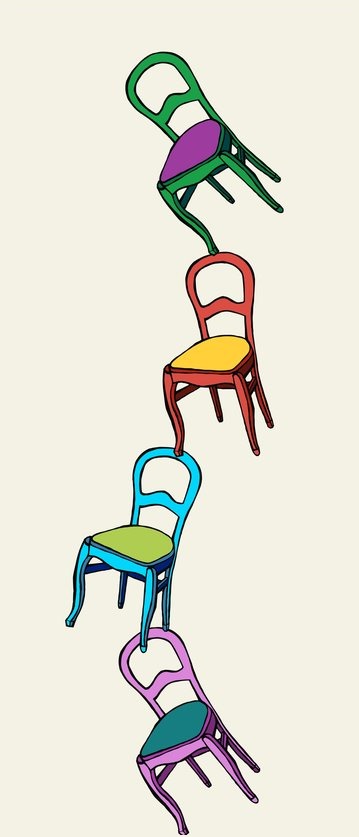
Personality assessment
SELECTION
We do in-depth personality assessments to be able to accurately describe both strengths and risks, to use but also go beyond what is immediately observable or described by the person. In connection with selection to strategically important positions, assessments have an obvious place. An unsuccessful recruitment leads to substantial costs and human suffering. To increase the possibility of success you need to ensure the match between the resources and experience of the individual and the expectations on the role. In selection assessments we look at the applicants with the eyes of the organization. The more we know about the organizational culture and actual challenges, the more accurate our assessment will be.
Assessment is usually one of the last steps in the recruitment process and time is scarce. You want an outside evaluation of whether you are on the right track or not. Who is the most suitable candidate, what do you need to consider to help the person get started as fast and smoothly as possible? We are used to short deadlines with preserved specificity and quality and are therefore able to give you the information you need in time.
Even though the needs of the organization are the guide of the selection assessment we aim to make the process meaningful for the participant. We presuppose the curiosity and wish to get to know oneself and give a transparent and developing feedback.
DEVELOPMENT
The purpose of assessments is to increase the possibilities for individuals and organizations to succeed – to have the right people in the right places. It is also an exclusive opportunity for learning – discussing your professional self with a process- and development-oriented psychologist increases reflection and self-awareness and can be the starting signal for a personal journey of change. Our assessments provide an elaborated description of an individual as well as of the potential match between individual, role and organization. We use a combination of methods, chosen to illustrate the individual in a comprehensive and just way from different angles, and then do an integrated analysis of all the information. We strive to do specific and in-depth descriptions rather than reducing the individual to a point in a diagram or comparing him or her with others. We want the assessment to be informative and developing for both the participants and their organizations.
To make the assessment process as optimal for learning as possible we recommend that it entails several steps. In addition to the testing and separate feedbacks to participant and organization we have found it favourable to do a three-party follow-up where participant, manager and consultant discuss the results of the assessment. When development is the specific goal of the assessment we recommend a series of coaching sessions where the participant and consultant are able to deepen relevant themes.

Team development
Smooth and constructive cooperation requires training; the team must put the everyday work agenda on hold and concentrate fully on what they are to achieve together and how to design the collaboration. This goes equally for new teams wanting to find comfortable and efficient forms, experienced teams seeking revitalization and teams troubled by conflicts or deadlocks.
Our work with teams aims to reach lasting effects in cooperation and productivity. We always help to ensure that essential and clear goals, structures, routines and member roles are formulated.
As a starting point, we often use a team development model that helps the team assess their cooperation and pinpoint important development themes to work on. We are all trained by professor Susan Wheelan, the originator of the model, and certified users of the assessment instrument Group Development Questionnaire.
Assessing the teamwork and designing relevant roles and structures are important issues, but there are more aspects to working together. In our workshops, we add parts that address informal and spontaneous processes between the team members: different expectations; the feedback culture; particular bones of contention or unexplored conflicts; effects of the surrounding organization. Our work is informed by the Tavistock tradition, with its focus on unconscious and systemic factors in group life.
We have experience from many different kinds of work teams. Lately, we have worked especially with management teams, adapting our methods to the fact that they usually spend little time together and that the members have to juggle several team memberships that may compete for attention and loyalty.
We recommend a format of 1 ½ day workshop with a ½–1 day follow-up session in 3-4 months time.
CONTINUOUS CONSULTATION
Sometimes it suits the purpose of the teams or the conditions they work under to establish a continuous development process, fusing discussions on cooperation with operational concerns. In that case, a series of shorter sessions is the preferred arrangement. This kind of consultative supervision can be varied according to needs: process-focused consultation tracking the development of the team; case consultation looking at specific issues of current interest to the team; or educational consultation where we work on predetermined themes to ensure that common tasks and problems are perceived and handled constructively.

Coaching
Individual conversational support or coaching can be the original wish or a logical consequence of other developmental interventions. We offer coaching, designed to increase your personal repertoire and polish your leader or professional skills. Developing conversations start from a professional challenge or dilemma but will often include other aspects of life. We also offer support in particular situations or concerning specific problems. Maybe you are getting ready to take on a bigger responsibility, or hesitating whether you are in the right place or wondering if you have ended up in a professional dead-end. You may also feel confused and torn between different demands in your professional role as well as other life roles.
Together we choose the best setup to meet your needs – a shorter or longer series of conversations, a more narrow or broader focus, more or less structure. When you and your closest superior have discussed the desired outcomes of the coaching together, our experience has shown that it is a good idea to start with a three-parties meeting where we together discuss the goals and how to follow up on them. Apart from these meetings it is important that you feel free talk about whatever feels most urgent and that your work in the coaching is protected. If your employer feels no need to take part of the coaching we will only work with what you bring.

360-degree assessment and leadership development
The Farax 360-degree tool helps you identify strengths and development areas in leadership. The tool builds on modern leadership research and the factors in leadership that has proven to be most significant in contributing to prosperity. It can be used on different managerial levels, ranging from project managers to top management, and in all industries. Since different levels of management are expected to contribute in different ways to the whole, the tool is standardized to different managerial levels. It is also an excellent and effective tool to use when you want to develop a management team.
It offers systematic illumination of important dimensions of leadership through the ratings from the individual leaders themselves together with the ratings from direct reports, peers and immediate superiors. This gives a collective picture of both the actual leadership behavior and what would be the desired leadership behavior of the position in question. This analysis together with the feedback discussion will provide the groundwork for the individual development plan with clear goals.

Integrated leadership development program
Based on customer wishes Leap now offers a new service that combines assessment, third party conversations and leadership development. When organizations initiate leadership development programs it is often the result of a need for development of specific competencies/qualities. You can fear that an investment in coaching will fail to guarantee that organizational needs are clear and worked with and that although the individual develops; it is in another direction than the desired.
Integrated leadership development is a way to attach leadership development closer to the organizational reality. This is done through third party conversations where the organization gives input to the coaching and where the relationship between participant and immediate manager can be illuminated and worked with.
The process starts with an assessment where we do an integrated analysis of the participant’s strengths and development areas, based on the demands of the position. We give feedback and discuss the results of the assessment with the participant. Then the results are discussed with the manager of the participant in a third party conversation, where the manager has the possibility to emphasize development demands based on organizational needs. The participant then works with his or her development in coaching sessions, sometimes with homework between sessions. In the last step the participant, his or her manager and the coach evaluate the development in a third party conversation.
Tailor-made services
We offer the services described above, but are aware of that you often are in a situation where you only know that you need support. In these cases we offer consultation aiming at defining and formulating the problem and explore what possible directions, measures or solutions are available. After one or more sessions you might proceed on your own, enriched with new perspectives on your situation and with an increased scope for action.
We might arrive at the conclusion that an educational intervention with a clear focus or working with conflict management is part of the solution. Or maybe the discussions lead to an understanding of that parts of the organizational leadership need strengthening and changing through a leadership development program. Or that one or several work groups would benefit from a series of consultations. In this gradual work, the interventions are tailor-made to suit your unique needs in the specific situation, and the content can cover a wide range of measures from a clearly pedagogical approach to more process-oriented ones.



